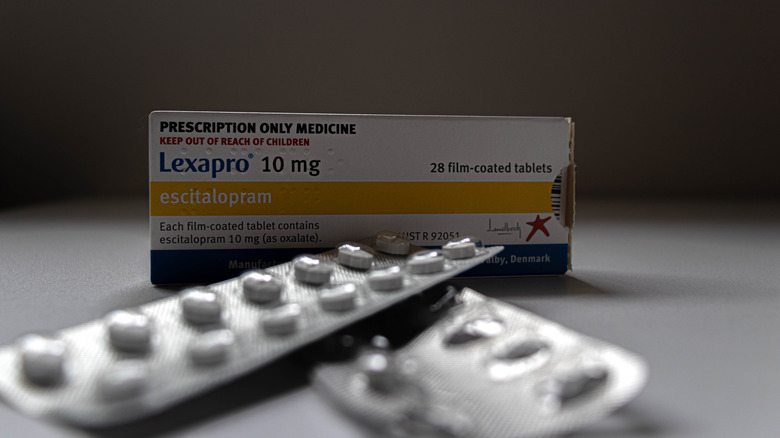How Lexapro Can Impact Your Weight
Antidepressants are a treatment option you might be familiar with if you struggle with depression or any other mental health issue. The use of antidepressants is more common than one might think, and appears to be steadily on the rise. Statistics provided by the federal government estimate that one in every ten Americans takes an antidepressant, according to Harvard Health Publishing. Between the periods of 1988-1994 and 2005-2008, there was a 400% increase in antidepressant use in both adolescents and adults.
One popular antidepressant goes by the generic name escitalopram, and is commonly known by its brand name, Lexapro. The National Alliance on Mental Illness (NAMI) explains how Lexapro is prescribed to treat major depressive disorder and generalized anxiety disorder. A doctor can also prescribe Lexapro "off-label" to treat other mental health disorders, such as obsessive-compulsive disorder, post-traumatic stress disorder, and eating disorders.
Having a 7.5/10 average user rating on Drugs.com for the treatment of various mental health conditions, Lexapro can be life-changing for some individuals. 68% of those who reviewed Lexapro on Drugs.com reported having a positive experience with the medication, and 16% reported having a more negative experience.
Lexapro has the potential to provide some light to someone's previously cloudy days by significantly decreasing the severity of their symptoms. However, it's important to keep in mind that antidepressants don't come without side effects. For instance, a major concern that individuals might have when beginning treatment with this antidepressant is whether they will gain or lose weight.
Can taking Lexapro affect your weight?
Like any other medication, side effects can occur when taking Lexapro, although the Cleveland Clinic reports these side effects are usually mild and temporary. But is it possible that some side effects, such as fluctuations in weight, could be more long-lasting?
A 2014 article published in JAMA Psychiatry studied the health records of antidepressant-treated patients, and discovered modest weight gain over a 12-month period for the observed antidepressants, with Lexapro being one. KHealth explains that this weight gain may occur because Lexapro acts to boost serotonin levels in the brain, with serotonin being a neurotransmitter that regulates appetite.
Some weight loss can also be associated with taking Lexapro, especially during the first few weeks of treatment, according to Live Strong. Although hearing about these side effects could initially sound alarming, For Hers reports that weight changes associated with Lexapro are often small. They also stress the importance of remembering that minor fluctuations in weight are normal and natural.
If you're considering trying Lexapro as a treatment option for your depression or anxiety, you can consult with a trained mental health professional, such as a psychiatrist. You should inform your doctor if you experience uncomfortable side effects while taking Lexapro or any other antidepressant.


